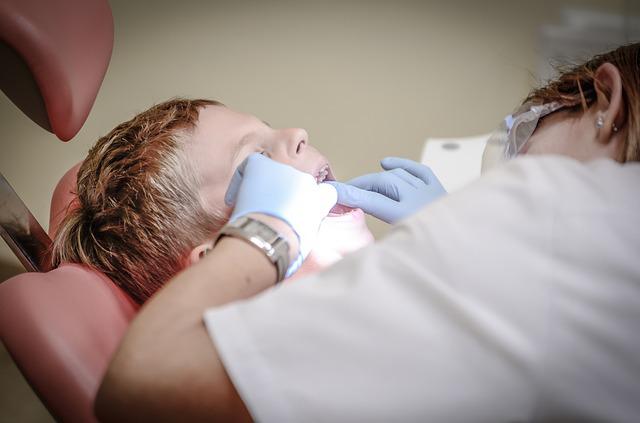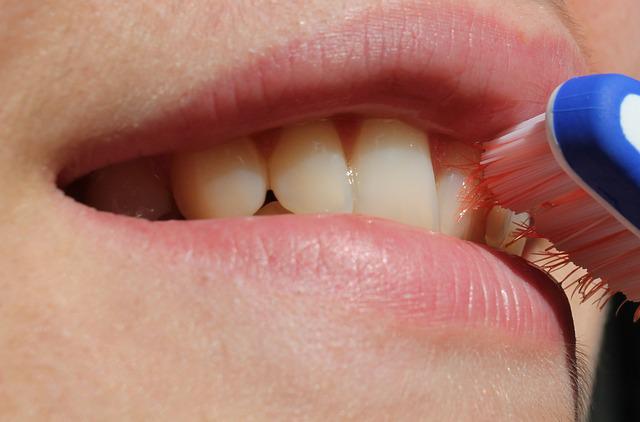We all know how important good health is. Unfortunately, on every corner we turn, we can find people smoking, drinking, or enjoying street food that will definitely cause harm that overrules the 5 minutes of satisfaction it provides. Maintaining good health isn’t just skincare routines, jogging, and bubble baths. It’s more than that. And one of the most important aspects of health comes with maintaining good oral health. It’s also one of the most forgettable and neglectful facets of health.
To ensure you take care of your oral health as much as your general health, we are here to guide you. Today, we will discuss the best practices that promise good oral health.
Table of Contents
Brush Properly But Carefully
Ever since we learned how to eat solid foods, we have heard lectures after lectures about how important brushing is. What people often forget to take into consideration is the fact that brushing is only useful if done properly and carefully. “What does that mean?”, You might be wondering.
Brushing is essential, yes. However, you should also know the “when” and “how” of brushing. You see, it’s ingrained in our brains to brush first thing in the morning. That might not be the right way, though. The best time to brush is 20-30 minutes after all three meals. This means you should be brushing a minimum of three times a day.
Now comes the “how”. Most people just put in toothpaste and start brushing aggressively. Unfortunately, that does more harm than good. You should always keep your brush a bit tilted towards your gums. This way, you’ll clean your teeth and your gums. Start from the right side and brush using intermediate force.
If you brush too aggressively, you might damage the enamel, which is the protective layer of your teeth. Oh, and don’t forget the tongue. That’s where most bacteria take shelter!
Flossing Is Essential
We have always thought of brushing as the holy grail of good oral hygiene and considered flossing the opposite. That’s where we are wrong. Our brush doesn’t have the ability to reach the spaces between our teeth. And that’s the area of most food impaction. Hence, flossing is as necessary as brushing, sometimes even more.
The right way to floss is to take almost 18-20 inches of dental floss, wrap the ends around your index fingers, and grip tightly. Next, slip the floss between your teeth and make a curve. Now, move it around the edges and the gum line. The technique might sound tedious. But with practice, you’ll nail it.
Besides removing food particles, flossing also helps stimulate gums, lower inflammation, and reduce plaque formation. All in all, it works efficiently to maintain good oral health.

Incorporate Flouride Into Your Oral Hygiene Routine
Many pieces of research have shown the efficacy of fluoride against bacteria. It helps prevent caries, and tooth decay and protects teeth from bacterial attacks. It is important to incorporate fluoride into your oral hygiene. No, that doesn’t mean to ingest it.
Most toothpaste and mouthwashes have fluoride as a core component, but some don’t. Make sure whichever brand of toothpaste or mouth wash you use has sufficient fluoride. Communities have also started water fluoridation. The process ensures the adequate presence of fluoride in drinking water.
However, you must know the recommended dose of fluoride since it becomes toxic at high doses. For adults, the recommended dose is 1ppm. The dose is less for children, and that’s why it’s recommended to use children’s toothpaste for them. If you still notice cavities despite the use of fluoride in your child, consult a pediatric dentist in Eden prairie. With children, you cannot take risks, so seeking help from professionals to guide you is the best bet.
Make Sure You Are Eating Healthy Foods
A well-balanced diet means a healthy body and oral health. The best way to limit oral diseases is to ensure you are ingesting foods that are healthy for you and your teeth. This means you must bid goodbye to sticky and sugary products.
We all know how sugar is bad for our teeth. But a sugary product that’s also sticky is worse. It sticks to the teeth and acts as a bed for bacterial growth. Moreover, when sugar is fermented, the acid destroys teeth and causes cavitation. This is also why doctors recommend putting a stop to frequent snacking.
Put Away Sugary Drinks And Increase Water Intake
As we mentioned, sugar is the biggest cause of tooth decay. That also means the sugar that’s present in sodas, shakes, and other drinks. It’s more harmful since these drinks have the highest amounts of sugar and other carbohydrates. This not only damages the tooth but is also a contributing factor in diabetes.
Carbonated drinks are especially harmful since the acid in the drinks causes erosion of the most superficial and protective layer of the teeth. This results in tooth decay, increased sensitivity, gums inflammation, and other problems.
So, if you want to maintain good oral health, switch all your sugary drinks to simple water. It decreases thirst and is also healthier than every other drink. It’s the best beverage that actually contributes to the betterment of oral health instead of destroying it.
Avoid Smoking, Alcohol, And Betelnut Chewing
A major rule of thumb for the best oral health is to avoid all bad habits. This means you have got to stop smoking and decrease your alcohol intake. And if you are into betel nut chewing, throw it away right now!
Tobacco and alcohol are the two biggest causes of major oral pathologies. Oral cancer, oral submucous fibrosis, and ulcers are just some of the top diseases caused by smoking and alcohol ingestion. Trust us, fighting these diseases is much more difficult than pronouncing their names.
Visit Your Dentist Regularly
On top of these basic practices, it is also important to visit your dentist regularly. Routine dental checkups are crucial if you want to maintain the best oral health. These checkups can help us detect problems early and hence, treat potential conditions with minimally invasive techniques.
Regular checkups also mean you can get basic procedures like scaling and polishing done frequently. These simple procedures brighten teeth and remove plaque that may act as home to bacteria. A single dental visit every 5- months can save you from constant weekly visits.
To Sum It Up
Adopting the above-mentioned practices will help your smile be the brightest. These practices offer long-term effects on your oral health and help you become an overall healthy person. Don’t ever forget that taking the right steps daily is crucial to preventing all harmful oral conditions.
I am Dr. Yenny Angela, a medical graduate from Hannover Medical School. I have expertise in emergency medicine and care for patients with multiple injuries. Also, I am a researcher always on the lookout for new scientific findings. I also have a publication on Researchgate.com.
